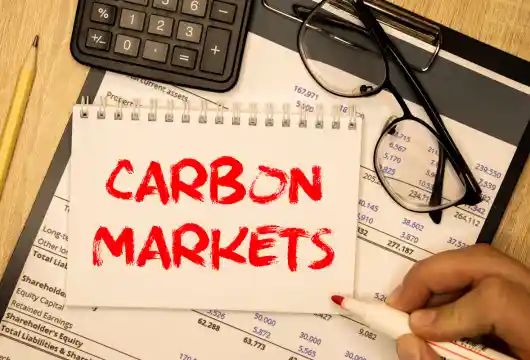Guidelines to Reform Carbon Markets
In a significant move to overhaul the international carbon credit system, the United Nations Framework Convention on Climate Change (UNFCCC) has publicly disclosed groundbreaking guidelines that could reshape the future of carbon markets. The proposal aims to establish clear directives for businesses and nations to obtain verified carbon credits, addressing growing concerns environmental advocates raise.
The U.N.’s new recommendations introduce specific criteria for offsetting projects eligible for carbon credits. To qualify, a project must substantially reduce emissions, and these reductions must exceed the carbon cuts that would have naturally occurred. Notably, offsetting can only be counted once for the nation or business purchasing the credit. The guidelines, if ratified, could instigate a transformative shift in the global carbon market.
Potential for Market-Based Climate Action
For advocates of a market-based approach to emission reduction, the U.N.’s guidelines are seen as a significant win. The guidelines, set to be discussed and potentially ratified at the upcoming COP28 U.N. climate conference in Dubai, provide a framework for nations and businesses to engage in a regulated global carbon market. Verified carbon credits can be generated through environmentally friendly projects like reforestation, clean energy development, and carbon removal. These offer a pathway for countries and companies to meet their emissions reduction targets.
The voluntary carbon market, valued at $414 billion, has faced accusations of fraud and misrepresentation. Instances of businesses making false claims about preventing deforestation and overstating carbon offset amounts have raised concerns. Skeptics argue that focusing on carbon credits distracts from the urgent need to phase out fossil fuels.
A vital aspect of the U.N.’s guidelines allows carbon credits to be generated from carbon removal projects, where existing carbon dioxide is captured and stored underground. While some view this as a positive step, critics question the scalability and cost-effectiveness of current carbon removal technology. Calls for an emphasis on proven clean energy technologies persist to achieve substantial emissions reductions.
Optimism Amidst Lingering Questions
Despite ongoing concerns and skepticism, some climate advocates see the U.N.’s guidelines as a positive step toward creating a functional carbon market. As the guidelines await discussion and potential ratification at COP28, the global community eagerly anticipates how these proposed reforms could shape the future of carbon markets and contribute to global climate action.
CLICK HERE for more inspiring climate news

